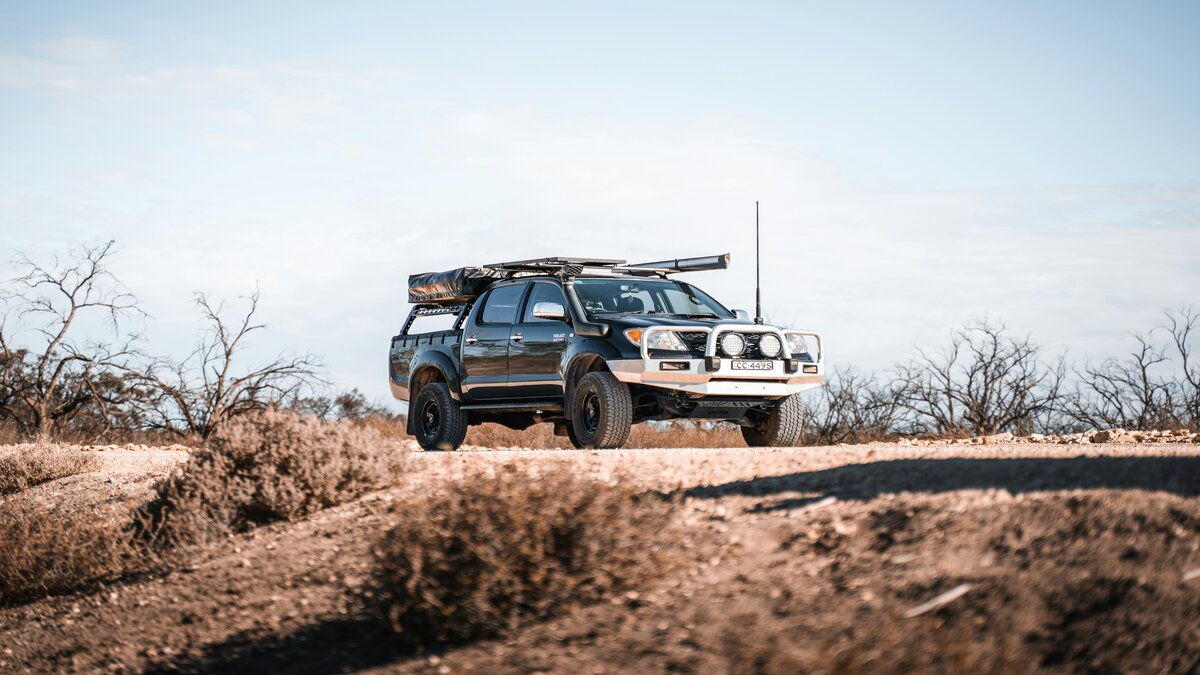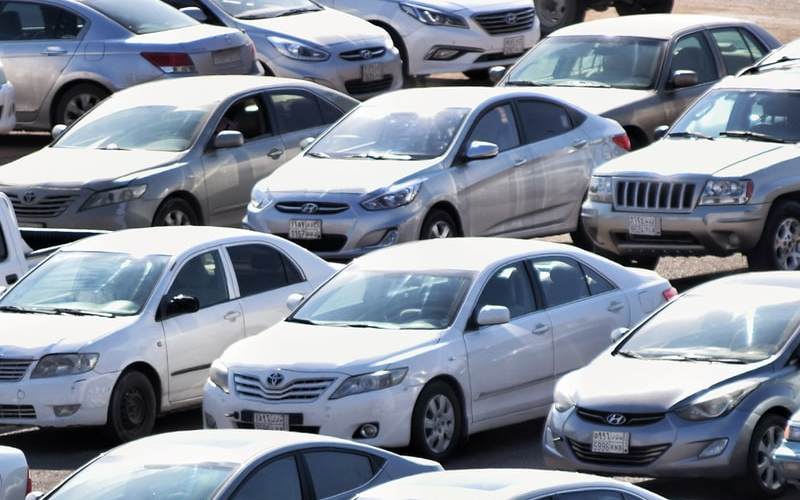In layperson terms, 'written-off' vehicles are those where the cost to repair them is more than the vehicle is worth, or they're considered too unsafe to repair and return to the road.
But there are different levels of written-off vehicles. Some can be repaired and pass safety inspections where they're declared fit to drive again (depending on the state or territory you're in). This article will cover vehicles that fall into this category.
What is a repairable write-off?
These are cars that have been assessed as a 'total loss' - or write-off - but don't meet the criteria for a 'statutory write-off'. This is when the car is deemed too damaged to repair and should not be sold again. Generally, statutory write-off vehicles are used for any undamaged parts and then scrapped.
Repairable write-offs are cars that have had significant prangs or sustained considerable damage but return to the road. So, what are you getting yourself into buying or perhaps selling a written-off car? The guidelines vary by state and territory, and there are certain insurance and finance implications you'll need to be aware of.
Who decides whether a car is a repairable write-off?
If a car is significantly damaged, it is generally up to an insurance assessor to decide its status. An assessor will generally consider:
-
the car's listed value against other models
-
the condition of the car pre-accident
-
how many kilometres are on the odometer
Let's look at an example. A Honda Jazz with a market value of around $5,000 is heavily damaged in an accident. Wrecking yards might offer the insurer around $1,000 for the remaining parts and scrap value. Panel beaters quote $4,500 to repair it. It's touch and go whether the car will be repaired but an insurer will likely choose to declare the car a write-off (sometimes called an 'economic write-off'), taking $1,000 for it, rather than paying $4,500 to repair it.
Generally, if this happens, the insurance company will take possession of the car, deregister it, and pay the policy holder the $5,000 market value. The car might go to a scrap yard where a third party deems it salvageable and repairs it to return to the market. The rules governing this differ between the Australian states and territories (which we'll get to later), but it's feasible the 'written-off' vehicle can return to the roads.
Can I buy a written-off vehicle?
The short version is that, in many instances, you can buy a vehicle that has been declared a repairable write-off (depending on what state or territory you live in). However, there are a few things that could affect your car-buying decision. The two big factors are whether you're able to insure and finance a repairable write-off.
How to insure a written-off vehicle
Nothing is fundamentally wrong with buying a repairable write-off, but you may find that it could be either tougher or more expensive to insure.
Another thing that affects a car's viability is its roadworthiness. A car that has failed its roadworthy test can't be insured until the items listed for repair are fixed.
Obtaining a roadworthy certificate varies state by state and legally it's up to the seller to provide one in most instances, so it pays to do your research here. You are usually required to dutifully notify your insurer of any existing damage and your car's roadworthiness before they allow you to take out a policy. Not doing so could void your insurance.
Can I finance a written-off vehicle?
A repairable write-off that's roadworthy in your state should be able to be financed, either through a secured or unsecured loan. As a repairable write-off car may be sold at a cheaper price than other similar cars, theoretically you could be paying less per week on the loan but, of course, the financier will also take into account your credit history, the loan amount, your risk profile, and other considerations.
How to check if a vehicle has been written-off
It's recommended you do the requisite checks before purchasing any vehicle, as some models may look and drive fine but you may not know what's lurking in their histories. The main service used to determine if a vehicle has been written-off is the Personal Property Securities Register (PPSR).
-
A PPSR report can cost just $2 online but be aware of third-party sites charging extra for the same service
-
The report should detail if a car is listed as written off/stolen - all you need is its vehicle identification number (VIN)
How to find the vehicle identification number (VIN)
Typically, your car's VIN can be found in a few places:
-
Stamped on the dashboard near the windshield on the driver's side
-
On a plate or sticker on the driver's side door jamb
-
Stamped on the engine's firewall
-
On your insurance card or policy
-
On your vehicle title and registration
What a PPSR check may not tell you
Stolen cars - particularly expensive ones - can undergo a 'rebirthing' process. Rebirthed cars are often wrecked, stripped, and 'reborn' under a new identity, bamboozling any potential new owner and reaping a profit for the shady cats who flip the car.
The PPSR likely won't identify that a car has been rebirthed, which is where the 'Written-Off Vehicle Register' (WOVR) comes in handy.
What is the Written-Off Vehicle Register (WOVR)?
The Written-Off Vehicle Register (WOVR) is a national initiative with each state and territory requiring businesses such as insurers, auction houses, dealers, wreckers, and recyclers to register when they write off a vehicle.
The WOVR was introduced in a bid to stamp out the practice of rebirthing vehicles where people were buying damaged cars for their vehicle identification numbers (VINs) to give a stolen car a new identity.
The write-off information is recorded on the WOVR and can be accessed by anyone thinking of buying a used car. The register only applies to cars, motorcycles, trailers, and caravans up to 15 years old. Vehicles older than that are not included. A vehicle's WOVR status is included in a PPSR report.
Car history reports
Several companies and motoring organisations provide car history reports, giving details of a vehicle's background.
For $38.95 (as at June 2024), a report from CarHistory by Equifax provides information on a vehicle's insurance claim history, stolen/write off history, valuation, and registration details. Still, it only covers cars 15 years or younger, so it won't cover all vehicles.
NRMA members can access cheaper reports via its website while some car insurers offer free PPSR reports but they are likely collecting your personal information at the same time.
The PPSR and WOVR can both provide valuable insight into a car's write-off or theft history. The $40-odd it costs to check can save considerable angst later on.
Potential risks of a repairable write-off
There are many things to consider when buying a vehicle that's declared a repairable write-off. If you see a car for sale that's significantly cheaper than similar cars on the market, there's every chance it could have been written-off at some point in its life.
While a write-off can occur from a car crash, it is also commonly due to flood or hail damage. Even if a car has been repaired professionally, it's almost never going to be as good as it was when it was new or when it's compared to similar vehicles that haven't been considerably damaged. Risks can include less structural rigidity or integrity, ongoing problems in the case of a flooded car, paint erosion and rust problems due to hail, and more.
But sometimes, buying a repairable write-off may not be as bad as it sounds. The decision to write the car off may have been based on an economic decision and the repairs may not have as significant a bearing on the car's performance or integrity. It is up to you, as a buyer, to assess the vehicle's status and whether the, usually, lower purchase price presents an acceptable risk in your circumstances.
Bear in mind though, a statutory write-off should not be on-sold under any circumstances, and to ensure a car has not been declared so, and rebirthed or stolen, it is wise to pay for a car history report on top of the PPSR report.
Also be aware of repairable write-offs from New South Wales being shipped off and sold interstate. The laws in New South Wales generally only allow repairable write-offs to be sold for parts but sometimes the vehicles can make their way over the borders for on-selling.
Overall, chances are by spending a few more dollars or even paying the same price, there will be a second-hand model of the same vehicle that hasn't been written-off, so it's handy to shop around and not jump at the first deal you see that seems too good to be true. That good deal might not be so great after all.
Selling a repairable write-off vehicle
If you're selling a written-off vehicle, there are a few things you should know. The laws vary state by state, so we've broken it down below to give you an idea of where you stand.
New South Wales
Since 2011, it has been illegal to sell a repairable write-off vehicle in NSW and similarly illegal to drive one, except in limited circumstances. This measure was introduced in a bid to curb the stolen vehicle/rebirthing market whereby vehicles are stolen, written-off, repaired, re-identified, and on-sold to the unsuspecting consumer.
Unfortunately, this has also led to repairable write-offs in NSW being re-registered in different states where it is legal to do so. This is mostly at the hands of insurers selling repairable write-offs to interstate auction houses, which are then purchased by buyers.
Victoria
Repairable write-offs can be put back on the road provided they are repaired to the manufacturer's standards, while also obtaining a Vehicle Identity Validation (VIV) certificate and a roadworthy certificate. Inspections are needed to verify a damaged vehicle is safe to be back on the road.
Queensland
It is legal to sell a repairable write-off vehicle in Queensland and - beware - private sellers do not legally need to tell prospective buyers the vehicle has been written off. (Make sure you carry out your own checks.) Provided the vehicle has been repaired, passed inspection and roadworthy, and can be registered, it is treated just like any other vehicle on the road. This is the case for many states, excluding New South Wales.
However, as at June 2024, the Queensland government was reforming the state's written-off vehicle scheme to "achieve a higher degree of national consistency".
South Australia
South Australia is another state that allows repairable write-offs back on the road, provided they pass inspection and roadworthy, and have been registered.
Western Australia
In the west, repairable write-offs can be back on the road provided they meet the following criteria: they are repaired, have passed their safety inspection, and have passed a written-off vehicle inspection (WOVI).
Tasmania
Like many other states, in Tasmania, you can put a repairable write-off back on the road provided it passes inspection, its roadworthy, and a vehicle identity check.
Australian Capital Territory
You can re-register a repairable write-off vehicle in the ACT provided it was ACT-registered before it was written off and it passes inspections. To get a car back on the road after a repairable write-off in the nation's capital, there are a few steps you need to go through. The ACT government requires: a roadworthy certificate, vehicle identity inspection, proof of ACT garaging address, proof of identity, proof of acquisition, and the vehicle's previous number plates.
Only licenced repairers can certify repairs during inspections. There are also regulations surrounding what parts from a written-off vehicle can be used to repair other written-vehicles. The territory will refuse an application to register a repairable write-off if the vehicle was not previously registered in the ACT or without proof of the vehicle's ACT garaging address.
Northern Territory
In the NT, you can re-register a repairable write-off provided the vehicle passes roadworthy, has a VIV, and a stolen motor vehicle (SMV) check completed.
Can dealers sell written-off vehicles?
In most states, except for NSW, it is legal for dealers to sell repairable write-off vehicles, but the write-off status must be disclosed to the prospective buyer. For more information, it is useful to check with your state's relevant motoring authority.
Insurance and finance when your car is written-off
If your car is written-off while it's under finance, it is generally a condition of your financier that you pay out the remainder of the loan. After a vehicle is declared written-off, your insurer can decide to pay your financier out and not you directly. In some cases, there may be a shortfall in the amount the insurer pays out, and how much is left on the loan, as the insurer has assessed the vehicle's market value to be less than what you owe on the loan.
-
To avoid this shortfall, on a financed vehicle you can usually take out 'motor equity insurance', which is a policy that covers this shortfall. Alternatively, with some insurers, you can insure for an 'agreed value' where you can make the agreed value equal to the loan amount.
It is important to note that there are various ways insurers assess a car's market value and depreciation usually plays a big part in this. If your vehicle is financed, it can be useful to look at your options to ensure you aren't out of pocket if you write off your vehicle.
Saving.com.au's two cents
There's a lot to consider when buying a second-hand car. A potential repairable write-off can throw a spanner in the works. While a repairable write-off may offer a very enticing price, you'll need to consider what you could be paying for. In worst-case scenarios, it may be a lesser quality car teamed with potential ongoing issues, repair bills, and more. Our suggestion is to look for another similar make and model and compare, but if you're set on that particular car, it's wise to carry out all the checks and balances and make sure you get a good price.
There are different levels of written-off vehicles. The one this article will cover is a repairable write-off which, as the name suggests, is a car that has experienced a significant prang or damage before being repaired and sold again, with the repair cost outweighing the car's market value. But what are you getting yourself into with buying or perhaps selling a written-off car? The guidelines can vary by state, and there are certain insurance and finance implications you may want to keep on top of.
Originally published 31 January 2020, last updated 26 June 2024.
First published on February 2021
Photo by John O'Nolan on Unsplash

.jpg)


 Denise Raward
Denise Raward
 Harry O'Sullivan
Harry O'Sullivan

 Emma Duffy
Emma Duffy
 Harrison Astbury
Harrison Astbury

